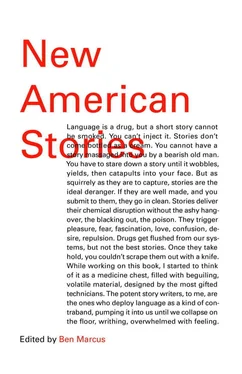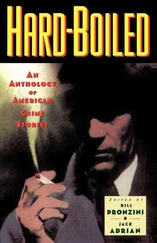“Not really,” I said.
“Margit, you need some perspective.”
“Perspective?”
“You know”—he rolled his eyes upward—“Slatland.”
Slatland — I remembered that that was what he’d called it, the drifting up and looking down.
“I’ve tried Slatland. It didn’t work,” I said.
“Slatland always works. Just close your eyes, all right, girlie?”
I started to stand up. “Thanks for your help, Professor Pine. I really have to go now.” But then I felt it, the lift, and my mind started rising, until the caws of Mortalhead and Eagerheart and Quickeye were far below me. I could see the yellow fields surrounding my town, and then even those went out of focus. I hurtled faster and faster until I finally stopped, what seemed like minutes later.
So this is Slatland, I thought. I looked down, and to my left I saw North America, large and jagged, flanked by oceans. Its face was beautiful — craggy, broken, lined with rivers. I found my part of the continent, a flat gold rectangle in the upper middle. I saw what my daily life looked like from this distance: my truck beetling through the prairies, dust rising off its wheels the way desire must rise, thousands of fragments of stone lifting off the earth. And when the truck stopped and I stepped out into the bright, empty fields, my loneliness looked extreme. I could almost see it, my longing and desire for Rezvan rising out of me the way a tree rises out of its trunk. I perceived, in an instant, exactly what I should do to keep him. I saw how simple it all would be, just to keep collecting the letters every morning, one by one, in order that what was between Rezvan and his wife would die slowly and easily and naturally, and what was between him and me would grow in exactly the same proportion.
If I had been able to climb down then, to drop out of Slatland at that moment, everything would have remained simple, and probably Rezvan and I would still be together. But Slatland seemed to have a will of its own. It would not let me go until I looked down to my right. If I was willing to see the simplicity, the purity, of my own desire, then I also had to see the entire landscape — the way desire rises from every corner and intersects, creates a wilderness over the earth.
I stood on Slatland a long time before I looked down to my right. There it was, Eastern Europe, floating above the Mediterranean. I traced with my finger the outline of Romania. I squinted, down through the mist and mountains, down through the thick moss of trees, until I found her. She stood in a long line of people, her forty-five-kilo children hanging on her skirts. She bent to them and broke for them some bread as hard as stone. I hovered a few feet above her and watched. Even so, I might still have been able to return to my own life, my own province, unchanged if she hadn’t turned her face upward right then, as if she had felt some rain, and looked directly at me.
This all happened very fast, in a blink of my eyes. When I opened them, Professor Pine was sitting on his desk, watching me. “You’re a real erky-terk,” he said, with a tic so extreme that it looked like it might swallow his face. He walked me to the door and handed me the letters, which later that night I would give to Rezvan. We would be standing on the balcony in the semidarkness of the moon, and I would be surprised at how easily they passed through my hands, as easily as water.
The birds shrieked. “Birdmen!” Professor Pine said. “Sometimes I feel like saluting them,” he said to me. He shook my hand. “Good luck, girlie-whirl.” Then he went up on his tiptoes and kissed me good-bye.
THE EARLY DEATHS OF LUBECK, BRENNAN, HARP, AND CARR by Jesse Ball
Four of them were on one side of a dim room.
— I’m going to try it, said the first.
The girl watched herself in the mirror as the young man approached.
— I wonder, he said. I thought perhaps…
He stopped mid-sentence, for tears had begun to well up in the girl’s eyes. She began to cry.
— Please, she said, just leave me alone.
She wore a straight brown dress, buttoned all up the side, and a long tweed coat. Her hair was braided into itself.
— Are you all right? he asked. Can I help you?
— You know, you can’t just speak to people. That’s not how things are anymore. No one wants to just be spoken to.
She rubbed her eyes.
— It’s rather silly of you. Already you look a bit like a fool. The barkeeper, standing just across the bar, nodded.
— There are rules, he said.
And indeed, on the wall, a list of rules.
— I’m sorry. I didn’t know.
— That’s no excuse.
The girl stood up as if to go.
— I’ll take care of this, Myrna, said the bartender. You stay where you are. He came around the bar toward Harp. He was a big man, with thick forearms like a steelworker.
— It’s time for you to go, lad. The others too.
— Come on, said Harp, taking a step back. The place is empty. I’ll just go back to the table. We’ll mind our own business.
— Hey, Barton! the man called to the back. Another man appeared.
— Get out.
Harp’s friends had come over.
— What’s the problem? said Lubeck.
— The lot of you, said the barkeeper. Get out.
— We didn’t do anything, said Carr. Why should we leave? Our money’s good.
The girl spoke up.
— He told me if I didn’t go into the back with him he’d hit me. He said he was going to take me off somewhere and tear me in half. Wouldn’t think nothing of it, he said. Just like that.
Her face was fierce and covered in tears.
— What? I didn’t…
The barkeeper and the man called Barton looked at each other.
Barton grabbed Harp and lifted him from the ground. At a half run, he went for the door and heaved him through.
The barkeeper took Brennan’s shoulder. Brennan wrenched away and ran out past Barton. It was a general flight.
— If I ever see you in here again, said the barkeeper.
—
Harp’s face was bruised and cut from the street where he’d been thrown. They dusted him off and continued on.
— What was that?
— Why did she say that?
— Who was that girl?
They soon came to another place and began again. Lubeck was talking to two dressed like matchstick girls.
— Can you believe it?
— That’s ridiculous, said the first girl. She must have a score to settle, and she can’t settle it.
— I don’t know, said the second girl. Maybe you deserved it. I don’t know.
Lubeck spoke up.
— But Harp didn’t say anything like that. The girl just invented it. She made it all up.
— Well it had to come from somewhere, didn’t it, said the second matchstick girl. It had to come from somewhere.
— That’s right, said the first matchstick girl. Even if she was making it up.
— But it’s not fair, said Carr. She made the whole thing up. It wasn’t true.
— Well, I guess you’re right then, said the second matchstick girl. But any way you look at it, you lost. If she wasn’t lying, well then, your friend deserved what he got, and it was her speaking up that caused him to get punished, in which case she won, and if she was lying, then she managed to trick those guys into throwing you out, in which case she still won. She won and you lost, and it was the four of you against just her. That’s pretty good.
The matchstick girls agreed: the girl in the brown dress had won. An hour or two went by.
It was thus late in the evening when one of the matchstick girls yelped.
— Hey, isn’t that the girl. Isn’t that her out the window?
— That’s her, said Harp. Damned if it isn’t her. Let’s go.
Читать дальше










![Женя Джентбаев - neo futura [stories]](/books/692472/zhenya-dzhentbaev-neo-futura-stories-thumb.webp)

